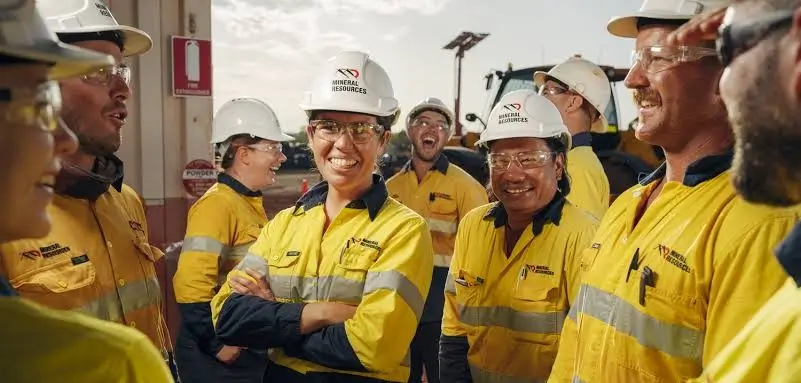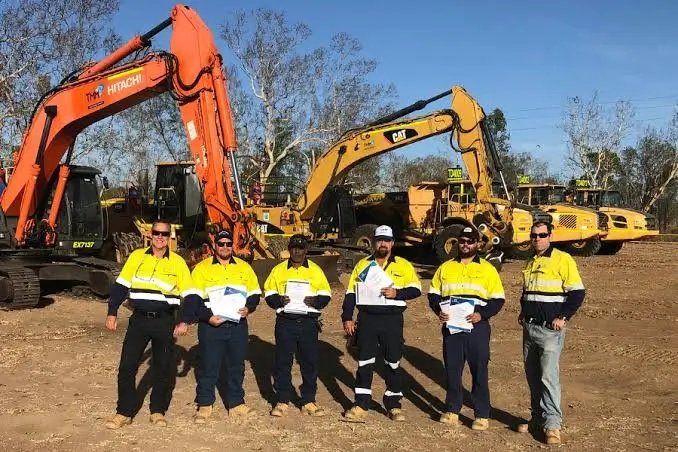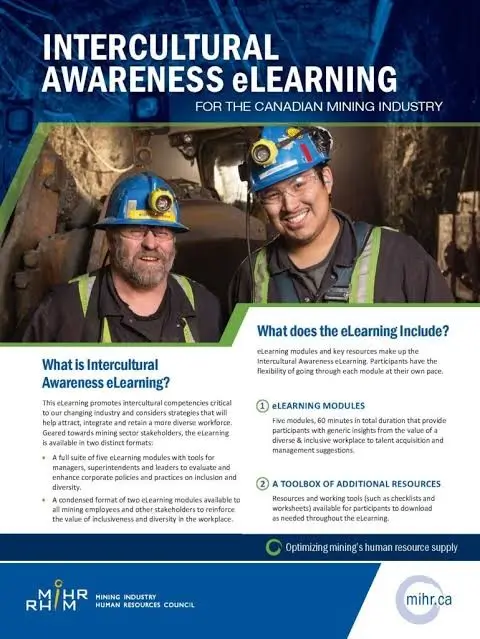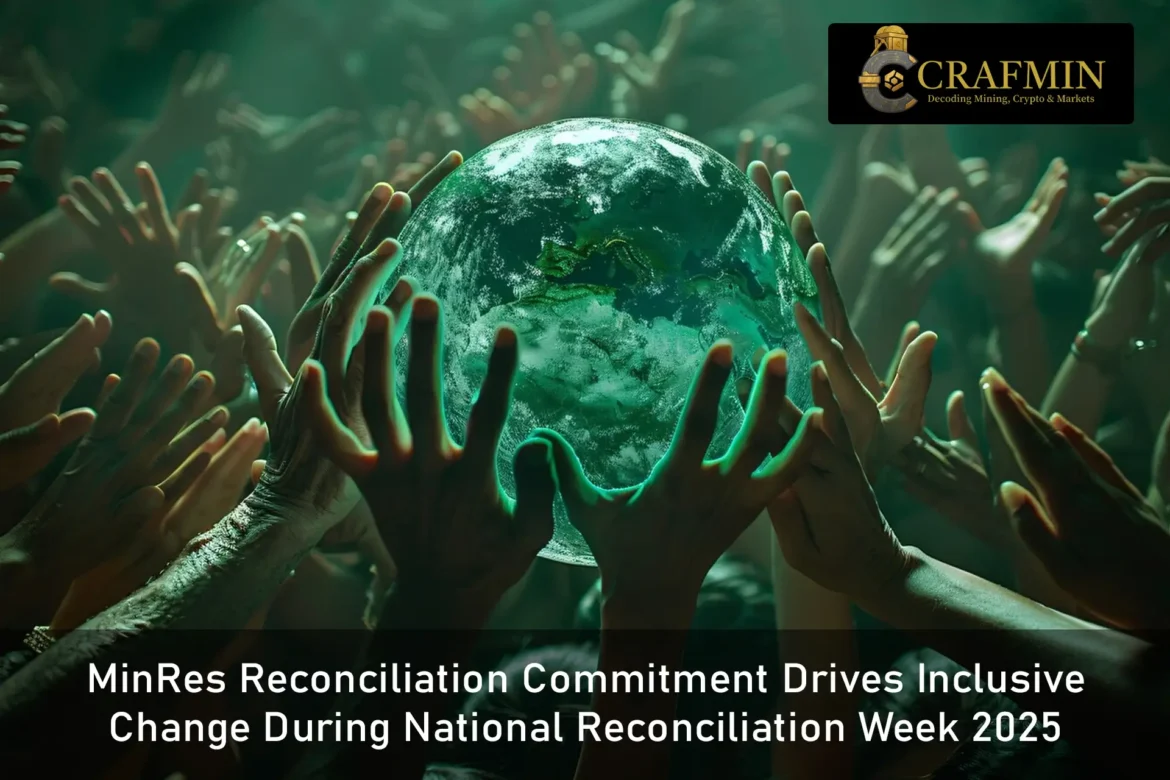
Image: Indigenous employee in high-vis gear at a MinRes site Source: Mineral Resources
As National Reconciliation Week 2025 unfolds, Mineral Resources Limited (MinRes) has amplified its commitment to building a future where Aboriginal and Torres Strait Islander culture is not only respected, but meaningfully woven into Australia’s modern mining narrative. The company’s refreshed approach to reconciliation is rooted in action—not just acknowledgement—backed by real outcomes in employment, cultural education, and Indigenous business empowerment.
At the heart of this movement is the MinRes reconciliation commitment, a purpose-driven blueprint for making Australia’s mining industry more inclusive, responsive, and respectful.
From Words to Work: Indigenous Employment Strategy in Action
MinRes continues to expand its Indigenous employment strategy, aiming to increase Aboriginal and Torres Strait Islander representation across operational, technical, and leadership roles.
Through dedicated recruitment pipelines and partnerships with Indigenous-owned employment agencies, the company is investing in sustainable pathways—not short-term hiring boosts. Training programs have been realigned to reflect both cultural context and the specific barriers Indigenous communities often face when entering the mining workforce.
These changes are not just tokenistic. They reflect a business-wide shift in how talent is sourced, mentored, and celebrated. Senior leaders have echoed the importance of breaking generational cycles of disadvantage through long-term careers—not just contracts.
The Accelerate Program: More Than a Jobs Pipeline
One of the standout initiatives under the MinRes reconciliation framework is the Accelerate program—a multi-tiered development pathway designed specifically for Indigenous employees. This initiative is designed to foster practical expertise, support formal qualifications, and encourage upward mobility within the workforce—outcomes that are already becoming visible across the organisation.

Image : Aboriginal worker graduates from MinRes Accelerate training program
Source: www.macmahon.com.au
Participants are placed in tailored rotations, giving them exposure to technical operations, safety procedures, and corporate engagement. Mentorship plays a vital role, ensuring Indigenous employees are not only included—but empowered to lead.
Cultural Awareness Initiatives Strengthen Internal Transformation
The mining sector has long struggled with cultural sensitivity and workplace inclusiveness. MinRes is addressing this by embedding cultural awareness initiatives across every level of the organisation—from onboarding sessions to executive retreats.
These aren’t box-ticking workshops. They’re immersive, led by Indigenous facilitators and elders, and include storytelling, history, and lived experiences. One such program was led by Chloe Milera-McLennan, a respected advocate and cultural educator, who delivered a powerful series of workshops focused on cultural identity and resilience in resource-intensive environments.
Feedback from participants has been overwhelmingly positive, with many describing the experience as “eye-opening,” “humbling,” and “transformative.”
Indigenous Business Empowerment Through Procurement Reforms
A key focus in MinRes’ reconciliation efforts involves actively partnering with Indigenous-owned enterprises, ensuring they have meaningful opportunities within its procurement and contracting framework. By revising procurement policies and creating direct pathways for Indigenous contractors, MinRes is helping build economic resilience where it matters most—on Country.
Contracts for site services, logistics, and earthworks have already been awarded to First Nations businesses, with ongoing support to scale operations sustainably. This is part of a broader push to ensure that mining’s economic impact benefits communities beyond the company’s immediate footprint.
Why This Matters in 2025
The industry is at a tipping point. Pressure is mounting for mining companies to operate with genuine social licences. For MinRes, the answer lies in authenticity. Its reconciliation strategy is not built around public relations—it’s grounded in people, place, and purpose.
By integrating Aboriginal and Torres Strait Islander culture into its core operations—not as an add-on but as an asset—MinRes is helping reshape what leadership in mining looks like.
Also Read: American West Metals Capital Raise Signals Renewed Confidence in ASX Junior Miners
Setting a New Standard for an Inclusive Mining Workforce
The efforts of MinRes don’t exist in a vacuum. They are part of a broader cultural shift across Australian resources, but the company stands out in its execution. As more stakeholders, including investors and regulators, expect accountability on social impact, companies with strong reconciliation performance will likely lead the next era of industry growth.

Image: Cultural awareness session at a mine site
Source : Mining Industry Human Resources Council
Final Word: Reconciliation as a Responsibility, Not a Campaign
The MinRes reconciliation commitment during National Reconciliation Week 2025 is a reminder that mining can—and must—do more than extract resources. It can be a force for restoration, recognition, and regeneration.
As the company continues to deepen its partnerships with First Nations communities, it offers a model for the mining industry that balances profit with purpose—and creates space for stories, voices, and leadership that have too long been silenced.
For further insights into Indigenous engagement within the mining sector, you can explore Colitco’s coverage on Impact Minerals’ initiatives.

